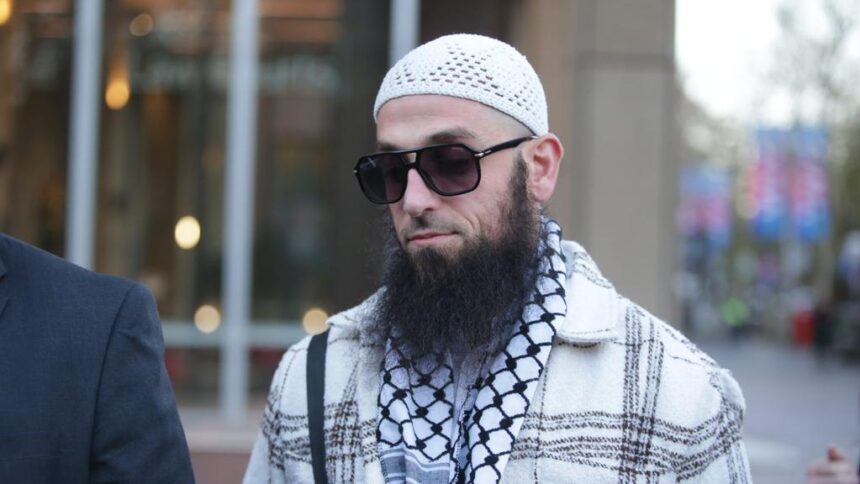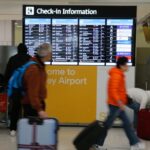Anti-Semitism Allegations in Australia: Wissam Haddad Faces Court Over Sermon Remarks
Sydney preacher accused in Federal Court
Sydney-based Muslim preacher Wissam Haddad, also known publicly as Abu Ousayd, is now at the centre of a major Federal Court case involving allegations of anti-Semitic hate speech. The case, brought forward by the Executive Council of Australian Jewry (ECAJ), could redefine how Australia handles the balance between free speech and racial vilification laws.
Sermons allegedly contain offensive remarks
The accusations stem from a series of sermons delivered in November 2023 at the Ad Madina Dawah Centre in Bankstown. These sermons, later uploaded online, allegedly contain highly inflammatory and dehumanising statements about Jewish people. The ECAJ argues that these public comments breached the Racial Discrimination Act 1975 and promoted hostility and division.
Court hearing begins with recorded sermons
The four-day Federal Court hearing began this week, focusing on analysing recorded evidence of Haddad’s sermons. Legal representatives for ECAJ—led by Peter Wertheim AM and Robert Goot AO SC—argue that the preacher’s speeches amount to incitement of racial hatred. They claim his language vilifies an entire religious group, violating Australia’s anti-discrimination framework.
Haddad calls Jewish people “vile” and “treacherous”
One speech singled out in court reportedly included Haddad describing Jewish people as “a treacherous people. A vile people,” with another sermon referencing ancient religious texts to claim they “used to kill their own prophets.” These remarks, according to the plaintiffs, are deeply offensive and are seen as promoting dangerous and outdated stereotypes.
Accusations about bombing humanitarian corridors
The recordings also contain Haddad’s commentary on Palestinian suffering in current geopolitical contexts. In one sermon, he reportedly claims: “Today they tell our brothers and sisters, yeah, you can go out from Egypt, the border of Egypt, but then they bomb them on the way out.” He continues, “Yeah, you can go in the safe zone and they bomb the safe zone. Yeah, you can get humanitarian aid and they bomb the humanitarian aid. Same games that they play … nothing’s changed.“
Legal test for racial vilification threshold
According to the ECAJ, these sweeping generalisations portray the Jewish community in a collective and hostile light, potentially breaching laws designed to protect minority groups from racial vilification. The court must now determine whether Haddad’s sermons cross the line from religious or political criticism into unlawful hate speech.
Religious expression or incitement?
Haddad’s case arrives amid increasing scrutiny over freedom of expression in religious and political discourse. Critics argue that religious leaders must be able to voice concerns about human rights issues abroad, including Palestinian suffering. Supporters of Haddad maintain that his words are political commentary, not racial incitement.
Australian law and public offense
However, legal experts and anti-discrimination advocates point to Australia’s laws, which prohibit public acts likely to offend, insult, humiliate or intimidate another group based on race or ethnicity. The question is whether Haddad’s sermons meet that legal threshold—or whether they fall under constitutionally protected speech.
A case with national and global consequences
This high-profile case comes at a time when multicultural tensions are rising globally and Australia is navigating the limits of lawful speech. The outcome could become a legal precedent, influencing how religious rhetoric is treated under anti-discrimination laws for years to come.
Religious leaders under legal spotlight
The Federal Court’s judgment is likely to have broad implications not only for religious freedom and community cohesion but also for the responsibilities of faith leaders in public forums. Australia must now reconcile the rights of free expression with its duty to uphold respect, tolerance, and legal protections in a diverse and democratic society.
National attention on free speech vs hate speech
As the hearings continue, Australia’s Jewish and Muslim communities, along with free speech advocates and legal scholars, are watching closely. The final ruling could shape how future allegations of hate speech within religious contexts are handled under national law.






